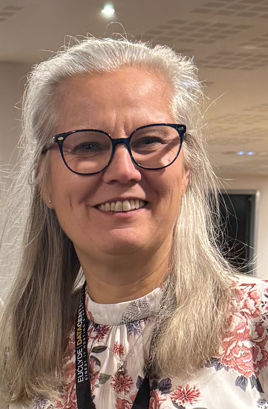Project summary
Client: Agence de la biomédecine (ABM), France
Solution: Enovacom telehealth platform
Impact:
- 5,634 transplants performed in 2023
- 125 donation sites and 23 transplant sites connected
Organ transplantation is a complex procedure where every minute counts, and the right decision depends on fast and secure access to medical information. Through Enovacom’s telehealth platform, Agence de la biomédecine is modernizing its entire decision-making chain and making it more reliable: anonymized medical images, standardized workflow and direct integration with the national information system (IS), giving surgeons access to reliable, centralized information so they can make faster decisions with greater peace of mind.
The customer's challenge
Before Enovacom, ABM faced the following challenges:
- The difficulty of sharing highly sensitive data (images, donor records) between numerous hospitals in a very short timeframe while complying with GDPR regulations.
- The need to guarantee that information remains confidential and anonymized without hindering the performance and speed of the process.
- The complexity of quality control, traceability and allocation validation for each graft, with the occasional need to share specific images (e.g., kidneys) as quickly as possible to validate a transplant.
Why ABM chose Enovacom ?
- Proven expertise in health data security, anonymization and interoperability using DICOM: Enovacom delivers a solution that complies with GDPR and national requirements.
- Seamless integration with the national information system (here, CRISTAL) and business workflows, without added complexity for teams.
- Reliability and operational continuity: platform has no downtime, timelines are met and maintenance is transparent.
- Business support: Enovacom knows how to meet the specific requirements of organ donation/transplantation (mandatory graft photo, paperless quality control).
Our approach
Enovacom deployed a comprehensive telehealth platform for ABM and healthcare organizations that was adapted to regulatory and business requirements.
Key features of the solution :
- Automated and anonymized sharing of medical images: examinations from donor center PACS are anonymized and automatically and securely pushed to the Enovacom platform, eliminating the risk of human error.
- Native integration with the national CRISTAL information system: everything is accessible to coordinators and surgeons directly via CRISTAL, without the need for re-entry.
- Standardized 6-step transplant workflow: file creation, anonymization, transmission, medical evaluation (via Enovacom tools/viewers or the transplant provider’s local PACS), transplant validation and full traceability.
- Temporary storage and automatic deletion: images are only kept as long as needed to make a decision, in strict compliance with the GDPR.
- Specific process for certain organs (e.g., kidneys): transmission of photos required to dispel any doubt about the viability of the transplant.
Key results
- Optimization of human and medical resources: travel and sampling limited to what is strictly needed after image validation.
- Full traceability: every step and every access is recorded and audited.
- Nearly 6,000 transplants facilitated every year with a highly secure procedure.
- Massive reduction in evaluation times: quick decision-making thanks to direct access to images, improved transplant success rates.
- Quality of assessment: the image is shared among the various stakeholders in the transplant chain. This significantly reduces misinterpretations, which occurred when there was a textual description of the assessment.
- Security and regulatory compliance: guaranteed anonymization and comprehensive access tracking.

Conclusion
- Thanks to the Enovacom platform, Agence de la biomédecine has become a national model of innovation in telehealth for transplantation. Medical teams, coordinators and patients now benefit from a smoother, more secure process that is truly focused on the success of each transplant. This success opens the door to new uses for other types of critical medical data or procedures.
